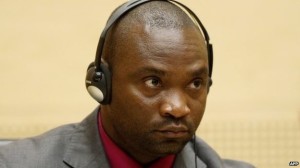 Today, Trial Chamber VIII of the International Criminal Court (ICC) unanimously convicted Ahmad Al Faqi Al Mahdi of the war crime of attacking historic and religious buildings in Timbuktu, Mali, in June and July 2012. The Court sentenced Al Mahdi to nine years’ imprisonment, deducting the time he has already spent in detention.
Today, Trial Chamber VIII of the International Criminal Court (ICC) unanimously convicted Ahmad Al Faqi Al Mahdi of the war crime of attacking historic and religious buildings in Timbuktu, Mali, in June and July 2012. The Court sentenced Al Mahdi to nine years’ imprisonment, deducting the time he has already spent in detention.
On 22 August 2016, at the opening of the trial, Al Madhi had already admitted guilt to the war crime consisting in attacking ten historic and religious monuments in Timbuktu, asking for forgiveness from the people of Timbuktu.
Al Mahdi was a member of Ansar Dine, a movement associated with Al-Qaeda in the Islamic Maghreb (AQIM) which took control of Timbuktu in 2012. As an expert on matters of religion, Al Mahdi was consulted by the leader of Ansar Dine in relation to the decision to destroy the mausoleums.
According to the Trial Chamber, Al Mahdi’s contribution to the destruction of the buildings, consisting of nine UNESCO World Heritage sites, was essential. He had overall responsibility for the execution phase of the attack and directly participated in the attacks on five of the protected buildings.
The Court considered that crimes against property are generally of less gravity than crimes against persons. However, the targeted buildings were not only religious buildings but had also a symbolic and emotional value for the inhabitants of Timbuktu. Continue reading

